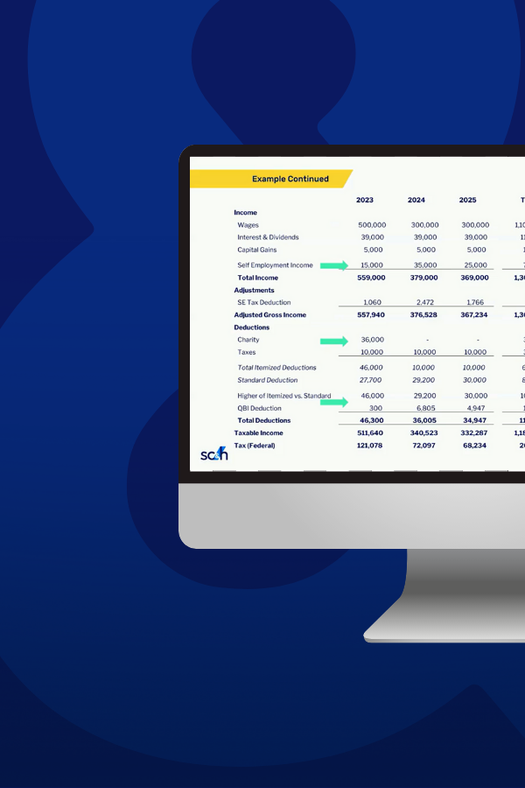Greg Hogan, Managing Director and Lindsay Baublitz, Principal | SC&H Capital
Navigating the sale of an ESOP-owned company adds layers of complexity to the typical M&A transaction. Whether you’re a buyer or a seller, understanding the unique aspects of structuring a transaction with an ESOP-owned company is crucial to ensuring a successful outcome. We’re sharing five ways these deals are different, and the next steps to take when considering this type of transaction.
1. ESOP Trustees Play a Crucial Role in Transactions
While most companies are controlled by individual shareholders, the stock owned by an ESOP (Employee Stock Ownership Plan) is overseen by an ESOP trustee. An ESOP trustee is an objective fiduciary who must act in the best interest of the plan participants, or beneficiaries, when evaluating a potential sale of ESOP-owned securities. When selling an ESOP-owned company, the trustee must determine that an offer is economically fair to the ESOP before a transaction can move forward.
ESOP trustees are closely monitored by the Department of Labor. If the trustee violates their fiduciary responsibilities to the ESOP beneficiaries, such as not receiving adequate consideration for the sale of company stock, they can face serious legal and financial consequences. Therefore, trustees are extremely cautious in evaluating potential sale transactions.
Most trustees will hire an independent financial advisor and legal counsel to assist them in navigating the decision-making process. The advisor will complete a business valuation of the ESOP’s stock and compare it to the potential sale proceeds of an offer. The trustee, with the assistance of their legal and financial advisors, will also evaluate the fairness of non-price related deal terms including:
- Proposed employment agreements
- Management bonuses
- Severance agreements
- Payouts of synthetic equity
- Change in control payments
- Contingent payment structure
- Scope of the ESOP’s representations and warranties
- Potential liability of the ESOP for indemnification claims
While the Board of Directors or the executive team may feel that they have negotiated a fair purchase price for the individual shareholders and/or the ESOP, the ESOP trustee must also conclude that the transaction is in the best interests of the plan participants. Therefore, it is beneficial for the ESOP trustee to be involved in the transaction discussions at the appropriate time.
2. Deal Structure Can Impact ESOP Voting Rights
In traditional M&A transactions, the decision to structure a deal as a stock sale or an asset sale is driven by factors such as tax, residual liability, and legal circumstances. However, in an ESOP transaction, the structure of the transaction also impacts the voting rights of ESOP plan participants.
- If structured as an asset sale, the law requires a pass-through vote to be conducted on the transaction such that the individual ESOP participants vote on whether to approve a sale. This complexity adds time and uncertainty to a sale process.
- If structured as a stock sale, the decision to sell on behalf of the trust is determined solely by the ESOP trustee. Voting approval from individual participants is not required.
Both the buyer and seller typically prefer to structure an ESOP transaction as a stock sale to avoid the time, complication, and expense associated with conducting a pass-through vote to the ESOP participants.
3. Escrows Aren’t Guaranteed and Can Complicate the ESOP Valuation Process
While indemnity escrows are a common feature in middle market M&A transactions, they can create significant issues for ESOP trustees from an adequate consideration perspective. Since escrowed funds are not guaranteed to be paid out to the ESOP, many trustees ignore any transaction proceeds that are escrowed in their evaluation of the transaction. This can make it exceedingly difficult for the trustee and the financial advisor to issue an adequate consideration opinion. It is helpful to involve an ESOP expert early in the M&A process to explain this nuance to the buyer and offer alternatives, such as a representation and warranty policy, that could be considered in negotiating the transaction structure.
4. ESOPs Provide Limited Representations and Warranties
Selling shareholders are typically required to make certain representations and warranties to a buyer about the company and its stock in connection with a sale transaction. However, when an ESOP is a selling shareholder, the ESOP trustee is typically unwilling to provide many of the standard representations and warranties that buyers have come to expect in lower middle market acquisitions. This can make for a challenging negotiation between the ESOP trustee, the buyer, the company, and other shareholders.
5. ESOPs Require More Challenging Post-Transaction Decisions
After the transaction is complete, the buyer must work with its advisors to determine whether to merge the ESOP into an existing plan with the buyer or terminate the ESOP and distribute assets to the participants. The trustee and the ESOP administrator must carefully follow the plan’s rules regarding the distribution of ESOP and plan assets after close. Additionally, escrows and contingent assets must be monitored and distributed when appropriate. Many of these issues will need to be negotiated in connection with the sale of the company.
Are You Considering Buying or Selling an ESOP-Owned Company?
Have you already received an offer for your ESOP-owned company? Before proceeding, make sure you understand how to evaluate the offer and what it could mean for your business. While the Board of Directors may execute a letter of intent (LOI) with a potential buyer without the formal consent of the ESOP trustee, the trustee will play a vital role in any successful transaction. As such, including the trustee in the process at the appropriate time is imperative.
The Board of Directors should seek advisors with appropriate ESOP expertise to help navigate the process. Due to the nuances of selling an ESOP-owned company, we recommend that plan sponsors work with an attorney and investment banker that specialize in ESOPs. The SC&H Capital ESOP team has decades of experience in evaluating, structuring, and executing successful ESOP transactions and can help ensure beneficial outcomes for you and your company.
Connect with our team today to learn how we can support you through ESOP ownership transitions.
ESOP Solutions for Forward-Thinking Business Owners
Find out if an ESOP is the right fit for your personal and business objectives. No obligations, just possibilities for success.
Discover the ESOP Advantage




